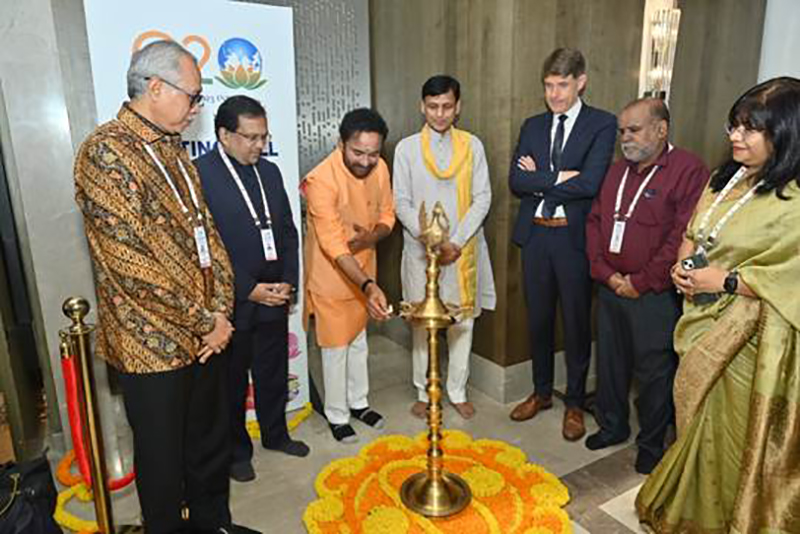 G20
G20 Deliberations of G20 Second Culture Group (CWG) meeting begin in Bhubaneswar
The delegate-level deliberations of the G-20 second Culture Working Group meeting kicked off in Bhubaneswar, Odisha on Monday .
The Minister for Culture, Tourism and DoNER, G. Kishan Reddy and Minister of State for Home Affairs, Nityanand Rai graced the inaugural session of the meeting.
Addressing the delegates, G. Kishan Reddy said, “ Culture plays an important role in global policymaking, as it leads to more inclusive and sustainable solutions to address contemporary challenges”.
He also added, “In this light, the G20 Culture working group plays a pivotal role in fostering collaboration and promoting dialogue among members. We are committed to promoting cultural dialogue, encouraging shared learning, and strengthening cooperation among members, while also giving due consideration to the unique cultural contexts and heritage of each nation".
The Minister further said, by pursuing a collective vision, we aim to create a more equitable and culturally aware global policy landscape that acknowledges the immense value of cultural diversity.
The role of culture in promoting social cohesion, fostering intercultural dialogue, and promoting mutual understanding cannot be overstated.
"The ancient Indian philosophy of 'Vasudhaiva Kutumbakam' (The world is a family) beautifully connects with the concept of unity in diversity, as it promotes the idea that despite our differences in culture, religion, language, or ethnicity, we are all a part of one global family", he opined.
Highlighting the importance of Cultural exchange, the Minister said that it can contribute to sustainable development by promoting local economies, preserving cultural heritage, and supporting community development.
He added that it is our duty to build upon the foundation laid by previous presidencies, to ensure that culture remains a key focus in the G20 agenda.
Kishan Reddy further said that local traditions and knowledge can teach about caring for the environment and using resources wisely.
"People who have lived close to nature for many years know how important it is to live in balance with the environment. By incorporating their knowledge and practices into modern sustainable development strategies, we can create a more resilient and sustainable future," he flagged.
Support Our Journalism
We cannot do without you.. your contribution supports unbiased journalism
IBNS is not driven by any ism- not wokeism, not racism, not skewed secularism, not hyper right-wing or left liberal ideals, nor by any hardline religious beliefs or hyper nationalism. We want to serve you good old objective news, as they are. We do not judge or preach. We let people decide for themselves. We only try to present factual and well-sourced news.







